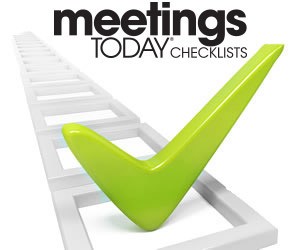- Determine event theme and mission statement. Work with colleagues to determine the theme of the event and identify what the event will accomplish.
- Identify audience. Identify the target audience and the best way to reach them.
- Identify event platform or virtual event service provider. Chose a partner that offers a virtual environment with an engaging user interface and functionality, a powerful platform and hands-on production services.
- Determine who will create and deliver content. Identify an internal contact or hire an organization that will help you connect the right type of content for your specific virtual environment.
- Establish a promotion plan. Create a plan to promote the virtual event from advertising to marketing to telemarketing to social media.
- Establish a timeline. Planning a virtual event takes almost as much time as planning a live event--anywhere from 6-12 weeks depending on the scope of the event. Build plenty of time into your schedule to allow for proper planning, creation of content and the promotions to attract people to your event.
- Content is king! Develop captivating and engaging content for your virtual event. The content you include in your virtual event helps your audience determine if they are interested in attending. Create valuable content that motivates learning and drives your audience.
- Develop a plan for getting sponsors. If you deliver the right audience and the right content in a streamlined virtual environment, the right sponsors will line up to sponsor the event. Work with a company that can help you pull all of these pieces together. Know what topics appeal to your target audience and present them with materials that describe the activities that will take place within your virtual event. Offer metrics that show sponsors what they will get in return for their investment, whether it's a lead guarantee, branding and awareness opportunities or the ability to get in front of a specific audience. Build comprehensive sponsorship packages that are affordable and make it easy for sponsors to engage.
- Promote your virtual event to attendees and potential sponsors. Promote early and often. Start promotions 6-8 weeks prior to the event to both in-house lists and external lists from media companies and/or list vendors. Plan e-mail blasts to your prospect database and encourage sponsors to promote to their customer and prospect lists, too. Get the media involved, either by working directly with a media company or use public relations as a tool for your promotions.
- Produce the event. Work closely with your platform/service provider during the process of building the virtual environment. Work with sponsors to prepare them with booth building, staffing and virtual event best practices. In addition, work with your content providers and speakers to prepare them for effectiveness with speaker training, live Q&A, etc. Make sure the registration process is simple and bullet proof, promote the event to registrants, send reminders and show open emails. Make it as easy as possible for people to register, remember and attend.
- Develop a follow-up plan with sponsors to ensure satisfaction. Distribute leads, show metrics, event statistics, attendee feedback, chat transcripts, etc. in a timely manner to demonstrate the return on investment and keep customers coming back. In addition, schedule de-briefing calls to explain show metrics and success points.
 Kathleen Connolly, Vice President of Sales and Development, West, UBM Studios
Kathleen Connolly, Vice President of Sales and Development, West, UBM Studios
As vice president of sales and development, West, Kathleen Connolly is responsible for business and sales development as well as professional consultative services. Connolly has 20 years of sales and management experience in IT media and events. Most recently, Connolly was the Strategic Account Director for Everything Channel where she worked with the leading Channel Chiefs and marketing executives from the largest technology manufacturers in the Western US to achieve strategic Channel objectives. She is an expert in blending the right products and services to suit the unique needs of each client. Prior, Connolly held both sales and management positions with Communications Week, InformationWeek, Network Computing, InternetWeek and DataCommunications. Connolly earned a Bachelor of Arts in Business Administration with an emphasis in International Marketing from California State University at Fullerton and received a certificate from the Leading and Managing People Program from Columbia University's Graduate School of Business.
UBM Studios (www.ubmstudios.com)
UBM Studios leads the industry in world-class user engagement for virtual environments, social networking and gaming. A global marketing service, UBM Studios delivers content, audience and in-depth analytics driving deeper award-winning user engagement paired with vision, process and execution






